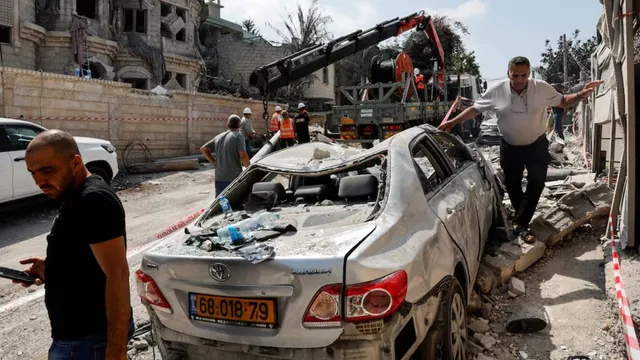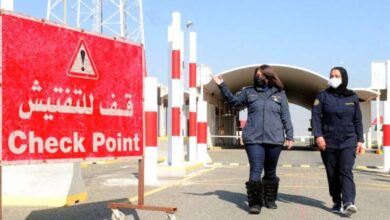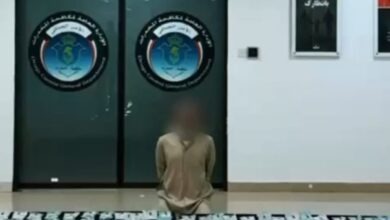
The Israel-Iran conflict escalated sharply today (Sunday), entering its third and most volatile day as Israeli warplanes launched deep strikes into Iranian territory, hitting critical nuclear and energy infrastructure.
With Iran vowing a fierce response and nuclear negotiations with the U.S. now scrapped, the region stands on the brink of a broader war, threatening global energy security, reports news agencies.
The following is a broader war scenario as the conflict enters third day:
Nuclear Talks Collapse as Conflict Deepens — Planned U.S.-Iran nuclear talks in Oman were canceled following Israeli strikes on Iran’s atomic facilities. Iranian Foreign Minister Abbas Araghchi called the talks “meaningless,” accusing Washington of enabling Israeli aggression.
Natanz and Isfahan Nuclear Facilities Bombed — Israeli jets targeted Iran’s Natanz enrichment site and Isfahan uranium conversion plant, knocking out vital power systems. The IAEA warned the strikes could result in “radioactive and chemical contamination” across the vast desert region.
South Pars Gas Field Set Ablaze — Phase 14 of Iran’s massive South Pars gas field was hit by Israeli missiles, causing a fire and halting 12 million cubic meters of gas production per day. Analysts warn this is the most consequential energy infrastructure strike since the 2019 Abqaiq attack in Saudi Arabia, with Iran now facing potential power outages and daily economic losses estimated at $250 million.
Casualties Mount in Both Countries — Iran’s UN ambassador confirmed 78 deaths and over 320 injuries from the strikes. In Israel, 13 people have died—including two children—amid renewed Iranian missile barrages on cities such as Rehovot, Bat Yam, and Tamra.
Oil Prices Surge Amid Supply Fears — Brent crude surged 14%, closing at $73 a barrel. Fears are mounting over the vulnerability of the Strait of Hormuz—a chokepoint for nearly 21% of global LNG and 14 million barrels of oil daily. Disruptions there could trigger a worldwide energy crisis.
Trump Distances U.S., Issues Warning to Iran — Former U.S. President Donald Trump declared that Washington played no role in Israel’s actions, but warned Iran that any attack on U.S. forces would be met with overwhelming retaliation. He also claimed he could broker a peace deal between Iran and Israel.
Netanyahu Threatens Broader Offensive — Israeli Prime Minister Benjamin Netanyahu said current operations represent “just a fraction” of Israel’s capabilities. Israel claims its initial strikes killed key Iranian figures, including IRGC chief Hossein Salami and military leaders Bagheri and Shamkhani. An Israeli official added that targeting Iran’s Supreme Leader Ayatollah Khamenei is “not off limits.”
Air Defenses Struggle Under Intense Fire — Israel’s Iron Dome and David’s Sling systems intercepted many projectiles, but some Iranian missiles penetrated, hitting dense civilian areas. Similarly, Iranian air defenses failed to protect critical sites like Natanz and South Pars from hypersonic Israeli strikes.
Stealth Attacks and Assassinations Fuel Shadow War — Israeli operations reportedly included drone strikes on gas infrastructure and covert assassinations of Iranian nuclear scientists and generals. Iranian officials, privately stunned, admitted underestimating Israel’s reach even amid ongoing nuclear talks with the U.S.
Global Pleas for Restraint Ignored — Despite appeals from India, China, the EU, and the UN for de-escalation and warnings about setting a “dangerous precedent,” both Iran and Israel signaled no intention to stand down.












